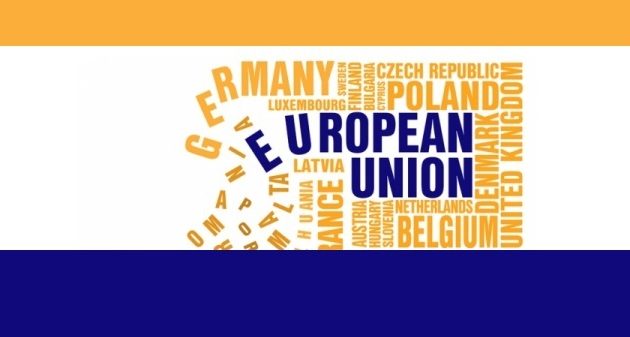The European Union: Borders on the Brink of Breaking
The borders of Europe are coming under severe strain. As we predicted here earlier this year, the migrant ‘crisis’ is no such thing. It is, rather, an ongoing situation of continent-wide turbulence with no foreseeable end. European ministers this week met to discuss the situation, but even they will find themselves unable to solve the problem.
Because the problem they face is that the drivers of the situation are far beyond their control. They are beyond any one politician or any one government. Indeed, they are also proving to be beyond the continent. Let us imagine for a moment that the civil war in Syria was able to be stopped by outside intervention from the EU. This would over time lessen the flow of refugees from Syria. But it would do nothing to prevent the human tide of asylum seekers and economic migrants heading towards Europe from Eritrea and sub-Saharan Africa.
What is the EU plan to deal with these situations? In truth, the EU is finding it difficult to control its external borders. So it is highly unlikely to achieve peace and stability across one continent (the Middle East) and prosperity to another (Africa). Until those things do occur, the pressure of mass movement of people towards the entry points of Europe will continue.
So what can be done? It is a very ominous sign that in recent days, weeks and months so many countries have gone increasingly unilateral. The Austrians have severely tightened their border with Italy because they do not trust the Italian authorities. Hundreds of migrants have piled up in a backlog at a border which is wholly closed to them. Hungary is planning a physical wall to go up on its border with Serbia. And at the French port of Calais there are desperate sights as migrants clamber onto vehicles bound for the UK. With other European countries refusing to share Italy’s burden, the Italians are threatening to give refugees travel permits that would effectively make them able to go anywhere. It is a grenade they have not yet thrown, but a grenade nonetheless.
The dream of the EU was that the borders of Europe would come down. But as the continent comes to terms with this latest crisis, it has not been able to stand together. The free movement of EU citizens within the EU is one thing. But the free movement of non-EU citizens within the EU threatens the cooperation of the whole enterprise. If Europe is to face up to this challenge it must first accept what it cannot do. And then swiftly move on to doing what it can.

FROM THE DIRECTOR’S DESK
I am writing this week’s column with one eye fixed on a TV screen outlining latest developments in France and Tunisia, where the scourge of Islamist terrorism has once again struck with a tragic beheading at a factory near Lyons this morning and one at a tourist resort in Sousse this afternoon.
Words cannot adequately describe the senseless brutality of these acts of terrorism. But they can go some way to explaining it and similar acts of violence carried out in the name of religion as can be seen through Rabbi Lord Jonathan Sacks’ masterful new book,Not in God’s Name: Confronting Religious Violence, which was the subject of a parliamentary discussion hosted by The Henry Jackson Society this week with its author.
Leaving aside the exemplary nature of Rabbi Sacks’ delivery of his central themes – which was described by the Member of Parliament hosting as the finest speech he had heard in his 18 years in the House of Commons – what came across clearly is the idea that while to deny that those who state they are acting on religious motives in committing violence are actually doing so is absurd, neither can it be said that there is an inherent relationship between religion and violence. As the author puts it: “there is a connection between religion and violence, but it is oblique, not direct.” Indeed, to take Rabbi Sacks’ argument further, as he does in the book, it is possible to see violence being carried out in the name of religion, but in reality it is being employed in pursuit of political, not religious objectives. Thus what ISIS and its adherents actually aspire to is temporal power in the form of a caliphate, even if this is dressed up in spiritual rhetoric.
This is an important factor to remember when considering events such as those witnessed today. We cannot deny the role of religion in terrorism, but we cannot consider religion just part of the problem and not also part of the solution. Arguably, it is only by Islam stripping away the political parts of its more extreme followers’ agendas from the religious ones of those of the moderate majority – as Christianity and Judaism did in their turn beforehand – that we will find the lasting way to meet the Islamist challenge.
Dr Alan Mendoza is Executive Director of The Henry Jackson Society
Follow Alan on Twitter: @AlanMendoza



Leave a Reply
Want to join the discussion?Feel free to contribute!